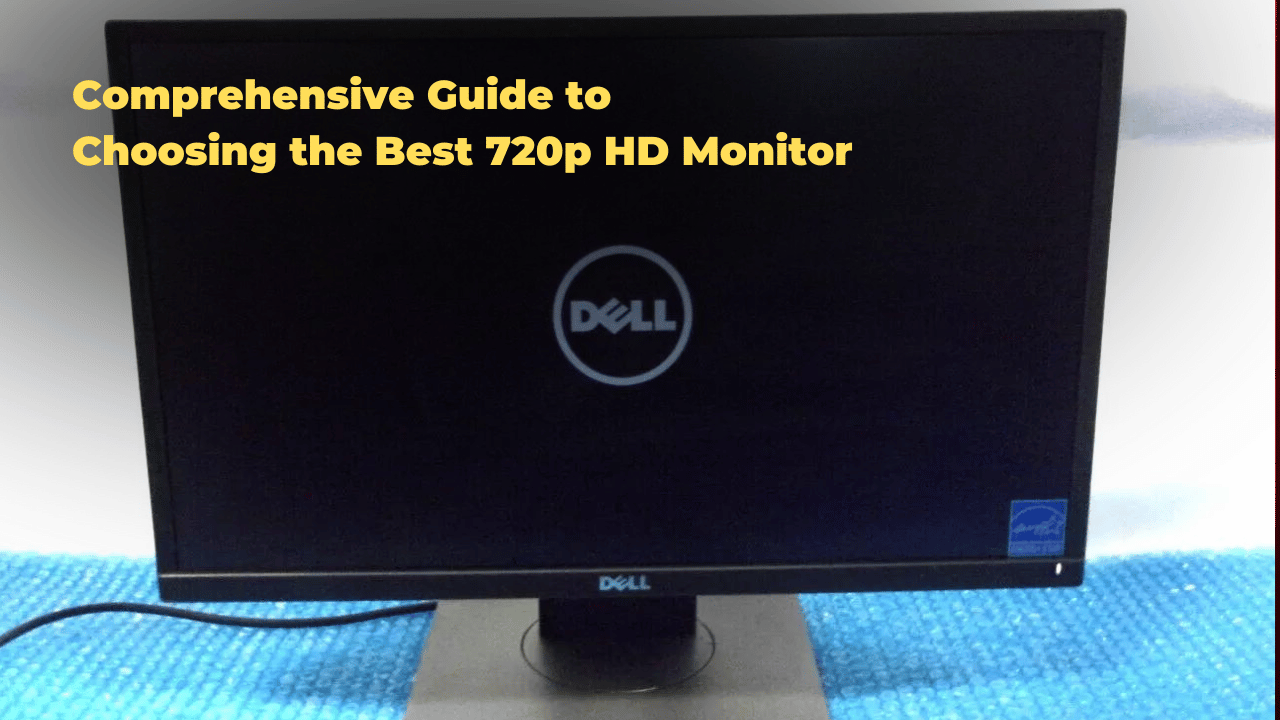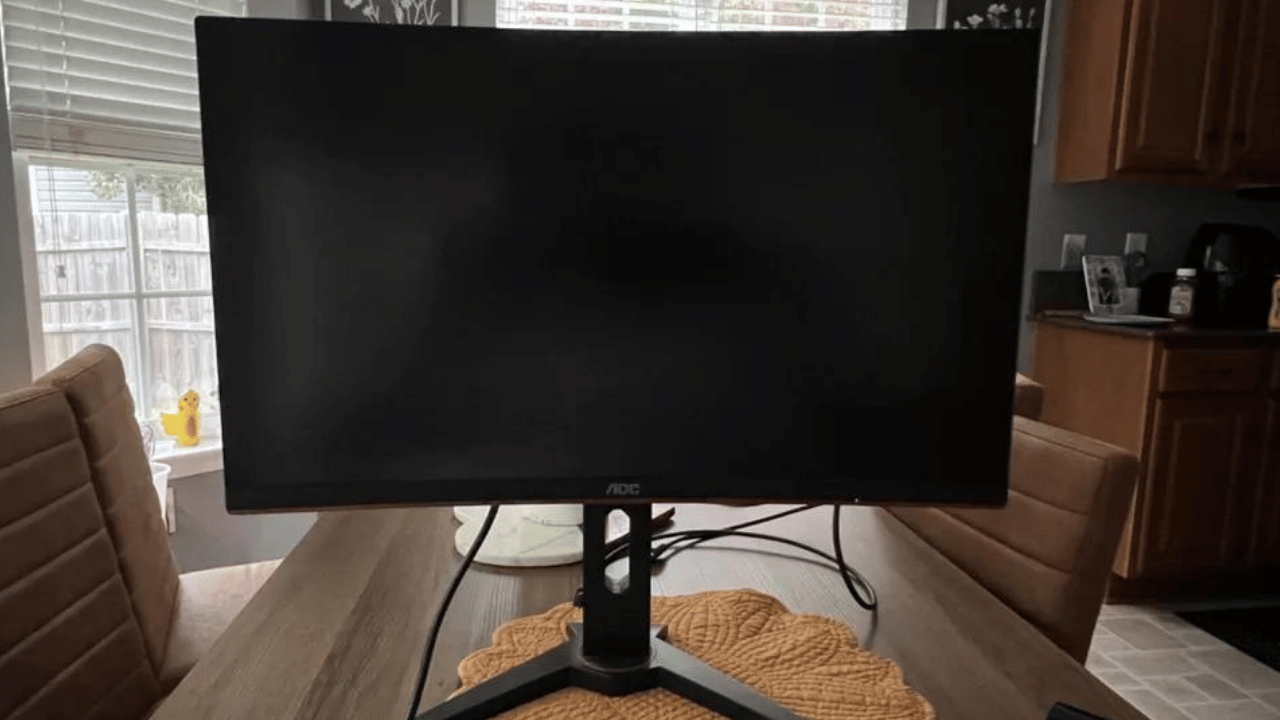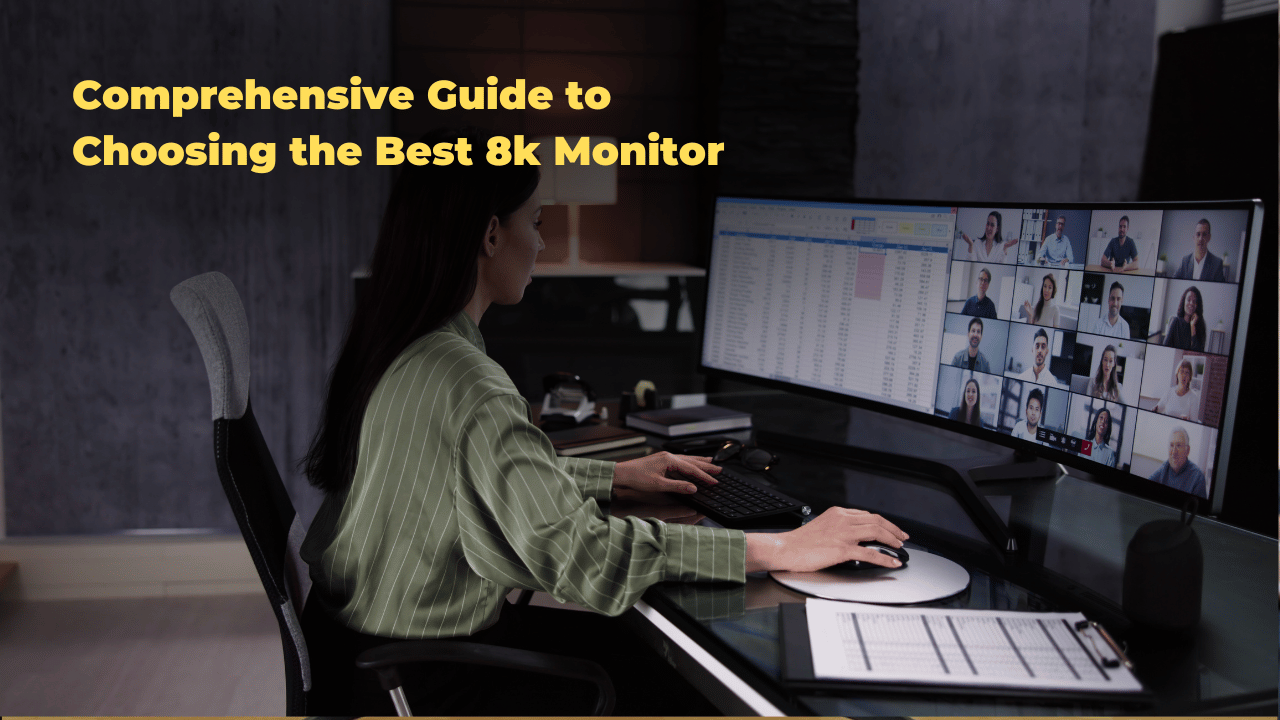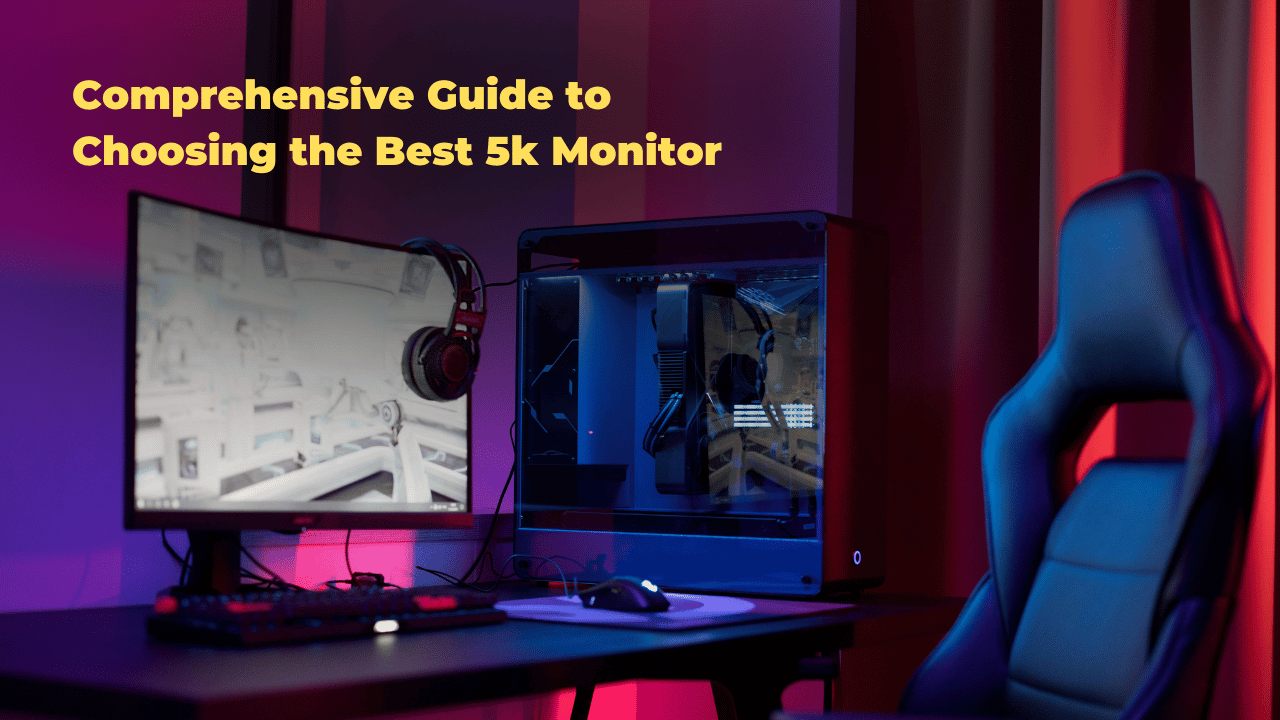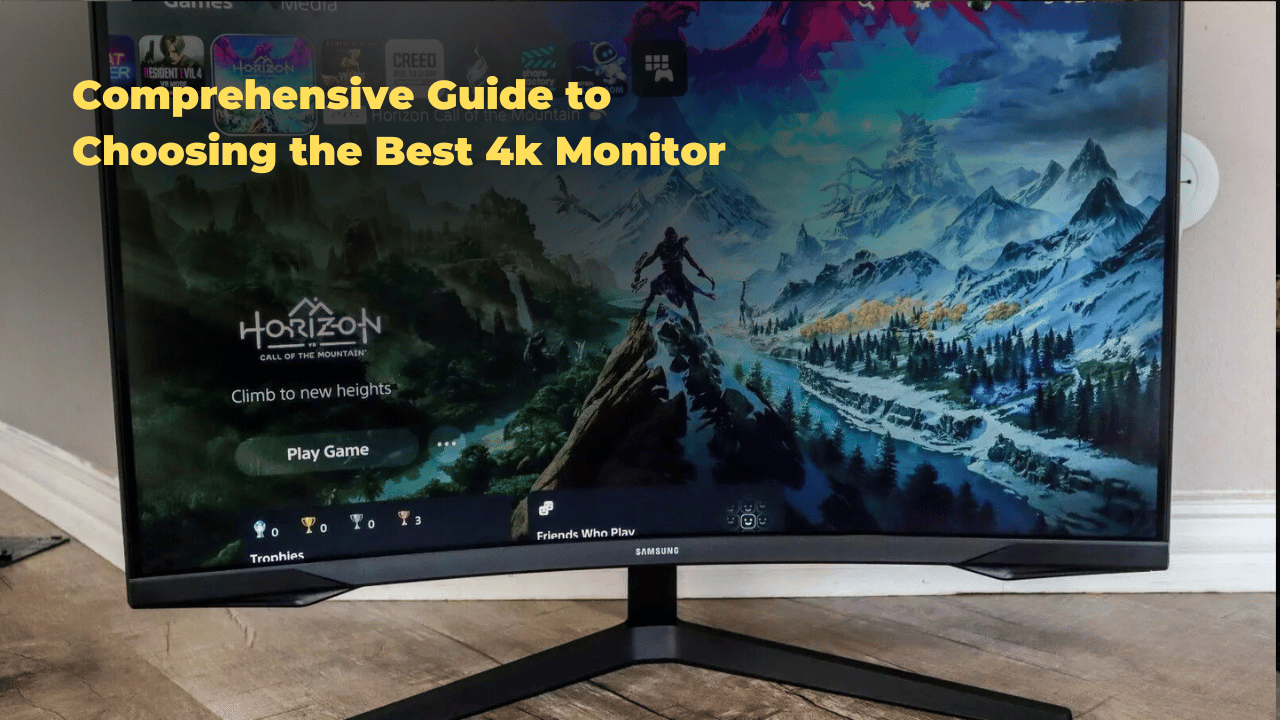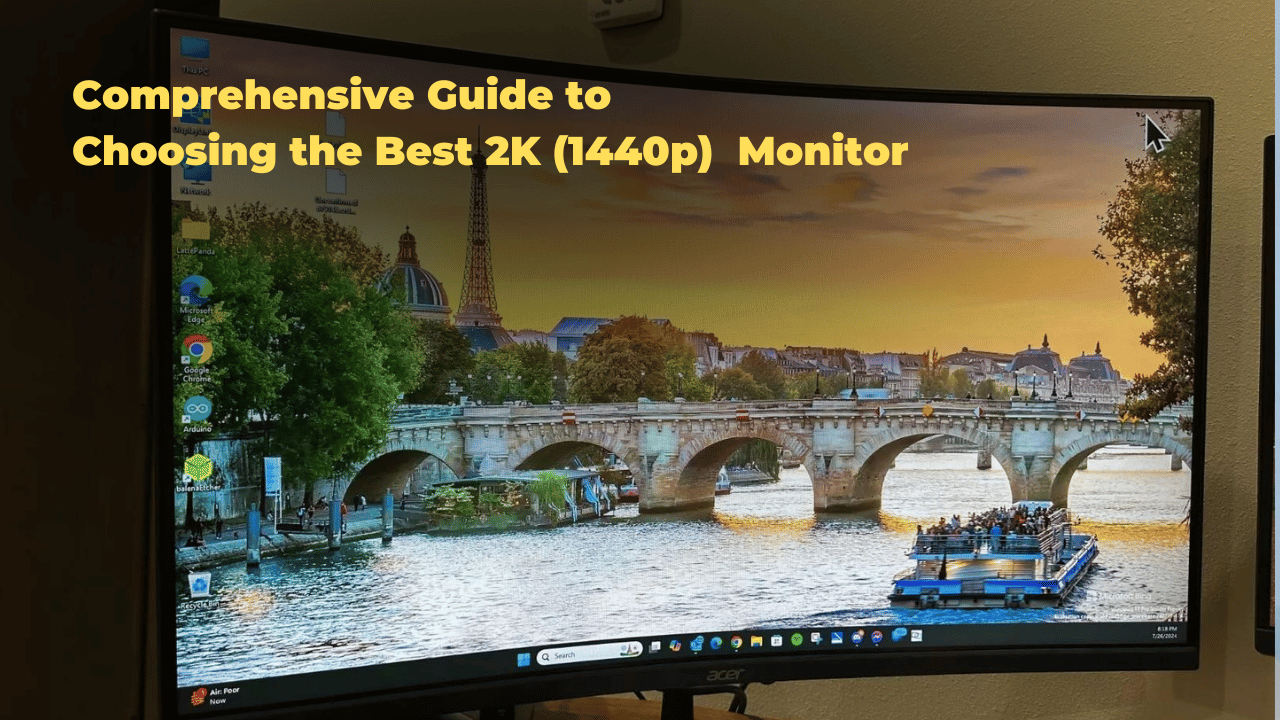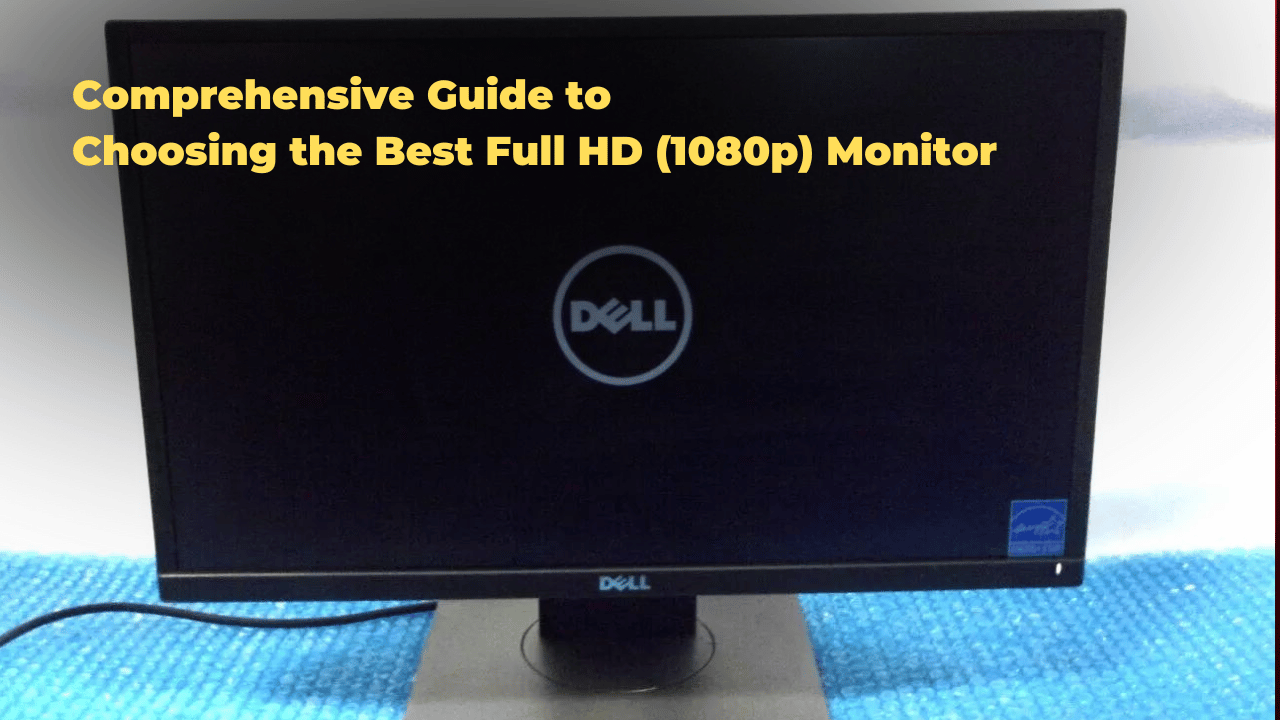HD (720p) display monitors boast a resolution of 1280 x 720 pixels, leveraging progressive scan technology to guarantee smoother images and a high pixel density for crisp visuals. Ideal for gaming, video editing, and HD content consumption, these displays provide an immersive viewing experience.
With benefits like high pixel density, progressive scan, and a wider color range, HD (720p) displays are suitable for entertainment, gaming, and multimedia applications. However, limitations like lower pixel density and compatibility issues should be considered. Learn more about the best uses and top picks for HD (720p) monitors to make an informed purchasing decision.
Key Takeaways
- Crisp Visuals: HD (720p) displays offer a resolution of 1280 x 720 pixels, ideal for gaming, video editing, and HD content.
- Smoother Image Quality: Progressive scan technology in HD displays eliminates flicker and blur, providing a smoother image quality.
- Versatility: HD (720p) displays are suitable for office work, web browsing, document editing, casual gaming, and multimedia.
- Top Picks: Consider BenQ GL2580H, AOC 24G2U, ViewSonic VA2446M-LED, and Acer R240HY for unique features and benefits.
- Key Considerations: When choosing an HD (720p) display, consider response time, refresh rate, panel type, and screen size for the best viewing experience.
- Optimize Your Display: Ensure a seamless experience by selecting the right display based on your specific needs.
- Gaming and Multimedia: HD (720p) displays provide an immersive experience for gaming and multimedia enthusiasts.
- Productivity: Suitable for office work, web browsing, and document editing, HD (720p) displays enhance productivity.
- Content Creation: HD (720p) displays are ideal for video editing and other content creation tasks that require crisp visuals.
- Upgrade Your Viewing Experience: Invest in an HD (720p) display for a smoother, more immersive experience.
Monitor Specifications Comparison Table
| Feature | TN Panel | IPS Panel | VA Panel |
|---|---|---|---|
| Response Time | Low | Medium | Medium |
| Contrast Ratio | Low | Medium | High |
| Viewing Angles | Narrow | Wide | Wide |
| Color Accuracy | Poor | Good | Good |
| Price | Low | Medium | Medium |
What Is HD (720p) Resolution?
HD (720p) resolution, a high-definition display standard, refers to a display resolution of 1280 horizontal pixels and 720 vertical pixels, resulting in a total of 921,600 pixels. This resolution is widely used in modern display devices, including HDTVs, monitors, and projectors.
Progressive Scan Technology
The ‘p’ in 720p stands for progressive scan, which means that the display renders the image in a single pass, rather than interlacing it. This results in a smoother and more detailed image.
Screen Clarity and Pixel Density
Understanding screen clarity is essential when it comes to HD (720p) resolution. The high pixel density of 720p displays enables a more detailed and crisp image, making it ideal for applications that require high-quality visuals, such as gaming, video editing, and watching HD content. The resolution is particularly suited for these applications due to its ability to provide a wider viewing angle, making it possible for multiple people to view the screen without compromising image quality.
Benefits of HD (720p) Resolution
HD (720p) resolution explained in simple terms means a more immersive viewing experience. The higher pixel count and progressive scan technology work together to reduce motion blur and artifacts, resulting in a more lifelike image.
Whether you’re watching a movie, playing a game, or working on a project, an HD (720p) display provides a noticeable improvement in screen clarity, making it an essential feature for anyone seeking a premium visual experience.
Key Features of HD (720p) Resolution
| Feature | Description |
|---|---|
| Resolution | 1280 x 720 pixels |
| Pixel Count | 921,600 pixels |
| Scan Type | Progressive scan |
| Ideal for | Gaming, video editing, watching HD content |
Note: The information provided is based on general knowledge and does not cite specific sources.
Benefits of HD (720p) Displays
Crystal-Clear Visuals: The Power of High Pixel Density
With their high pixel density and progressive scan technology, HD (720p) displays offer a multitude of benefits that enhance the viewing experience. One of the most significant advantages is improved clarity. The high pixel density of HD displays guarantees that images are rendered with exceptional sharpness and detail, making it ideal for applications that require precise visuals, such as gaming, video editing, and medical imaging.
Seamless Viewing: Eliminating Flicker and Blur
HD (720p) displays also provide an enhanced viewing experience due to their ability to display a wider range of colors and contrast levels. This results in more vivid and lifelike images, making it ideal for entertainment and multimedia applications. Moreover, HD displays are capable of displaying fast-paced content, such as sports and action movies, without any noticeable blur or artifacts, ensuring an immersive viewing experience.
Energy Efficiency and Environmental Sustainability
In addition to these benefits, HD (720p) displays are also energy-efficient and environmentally friendly, making them an attractive option for businesses and consumers alike. Overall, the benefits of HD (720p) displays make them an excellent choice for anyone looking to upgrade their viewing experience, whether for personal or professional use.
HD (720p) Display Benefits at a Glance
| Benefit | Description |
|---|---|
| Improved Clarity | High pixel density for exceptional sharpness and detail |
| Seamless Viewing | Progressive scan technology eliminates flicker and blur |
| Enhanced Color Range | Wider range of colors and contrast levels for vivid images |
| Energy Efficiency | Environmentally friendly and cost-effective |
| Immersive Experience | Ideal for entertainment, gaming, and multimedia applications |
HD (720p) Display Limitations
Resolution Comparison: HD (720p) vs. Full HD (1080p) and 4K
HD (720p) displays have a lower pixel density compared to higher-end options like Full HD (1080p) and 4K, resulting in a potential loss of detail and clarity.
Display Size Restrictions: Optimal Viewing Experience
Larger screens highlight HD (720p) resolution, reducing image quality. HD (720p) displays often can’t handle fast-paced content, causing screen tearing and blur.
Compatibility Issues: Device Connection Limitations
HD (720p) displays may have compatibility issues when connected to devices that support higher resolutions or refresh rates, leading to scaling issues and a subpar visual experience.
Making Informed Purchasing Decisions
Understanding these limitations is vital for making informed purchasing decisions. By considering these restrictions, consumers can find the right HD (720p) display that meets their specific needs and is compatible with their devices.
HD (720p) Display Specifications: A Quick Reference
| Specification | HD (720p) |
|---|---|
| Resolution | 1280 x 720 pixels |
| Refresh Rate | 60Hz or 120Hz |
| Aspect Ratio | 16:9 |
Addressing User Concerns
- Will an HD (720p) display provide a good viewing experience for gaming and fast-paced content?
- Are HD (720p) displays compatible with devices that support higher resolutions or refresh rates?
- How does the display size affect the viewing experience on an HD (720p) display?
Best Uses for HD (720p) Monitors
Affordable Productivity: Office Work and Web Browsing
HD (720p) monitors are ideal for everyday tasks. They’re affordable and perfect for office work, web browsing, and standard videos.
Document Editing and Office Productivity
HD (720p) monitors are ideal for office work. They efficiently handle tasks like editing documents, managing emails, and creating spreadsheets.
Casual Gaming Experience
HD (720p) monitors suit casual gamers well, but serious gamers often need faster refresh rates and higher resolution.
Graphic Design and Standard Resolution Images
HD (720p) monitors can accommodate graphic design tasks that involve working with standard resolution images and graphics, making them a suitable option for graphic designers.
Immersive Video Streaming
HD (720p) monitors can provide an immersive viewing experience for video streaming services such as YouTube, Netflix, and Amazon Prime, making them a great option for entertainment.
Top HD (720p) Display Picks
Fast-Paced Gaming with BenQ GL2580H
The BenQ GL2580H, a 24.5-inch monitor, offers exceptional gaming performance with a 1ms response time and 60Hz refresh rate, making it ideal for fast-paced games. Its TN panel provides decent color accuracy and a wide viewing angle, ensuring an immersive gaming experience.
Competitive Gaming with AOC 24G2U
The AOC 24G2U, with its 24-inch Full HD display, boasts a 1ms response time and 144Hz refresh rate, making it perfect for competitive gamers. Its IPS panel delivers vibrant colors, and its adjustable stand allows for comfortable viewing.
Large Screen Size with ViewSonic VA2446M-LED
For those requiring a larger screen size, the ViewSonic VA2446M-LED is a 24-inch monitor with a 2ms response time and 60Hz refresh rate. Its LED-backlit panel provides excellent brightness and color accuracy, making it suitable for multimedia applications.
Stylish and Color-Accurate with Acer R240HY
The Acer R240HY, a 24-inch monitor, features a 4ms response time and 60Hz refresh rate. Its IPS panel delivers excellent color accuracy, and its sleek design makes it a great addition to any workspace.
Top HD (720p) Display Picks: Exceptional Performance and Value
These top 720p displays deliver exceptional gaming performance, large screens, and great value. Ideal for gaming, multimedia, or everyday use.
Key Features Comparison
| Monitor | Response Time | Refresh Rate | Panel Type | Screen Size |
|---|---|---|---|---|
| BenQ GL2580H | 1ms | 60Hz | TN | 24.5-inch |
| AOC 24G2U | 1ms | 144Hz | IPS | 24-inch |
| ViewSonic VA2446M-LED | 2ms | 60Hz | LED-backlit | 24-inch |
| Acer R240HY | 4ms | 60Hz | IPS | 24-inch |
Note: The comparison table provides a concise overview of the key features of each monitor, making it easy to compare and choose the best option.
Frequently Asked Questions
Can I Use an HD (720p) Monitor With a Non-HD Computer?
Yes, you can use an HD (720p) monitor with a non-HD computer, but be aware of resolution compatibility limitations. Adjust monitor settings to achieve peak display quality, as technical constraints may affect image sharpness and clarity.
Is HD (720p) the Same as Full HD (1080p)?
HD (720p) and Full HD (1080p) differ in resolution. Full HD offers sharper images (1920×1080 pixels) than HD (1280×720 pixels), impacting device compatibility and visual quality.
Do HD (720p) Monitors Support 4K Resolution Upscaling?
HD (720p) monitors can’t display native 4K resolution. Some models upscale lower resolutions to 4K, but image quality suffers.
Can I Connect an HD (720p) Monitor to a Gaming Console?
‘Practice makes perfect,’ and when it comes to gaming, the right monitor connection is essential. You can connect an HD (720p) monitor to a gaming console. However, the lower resolution may impact performance.
Are HD (720p) Monitors Compatible With Older VGA Cables?
HD (720p) monitors are compatible with older VGA cables, but resolution may be limited. Non-HD computers can use VGA, but the image quality will be lower than 720p.
Conclusion
HD (720p) displays offer a good balance of quality and price. They’re suitable for everyday tasks, casual gaming, and watching videos. While not as sharp as higher resolutions, they’re reliable and affordable.
When choosing an HD (720p) monitor, consider your specific needs and budget. For general office work and web browsing, an HD (720p) monitor can provide an excellent viewing experience. However, if you require higher resolution and detail for tasks like video editing, you may want to consider a higher resolution display.
What are your thoughts on HD (720p) displays? Share your experiences and opinions in the comments below!


